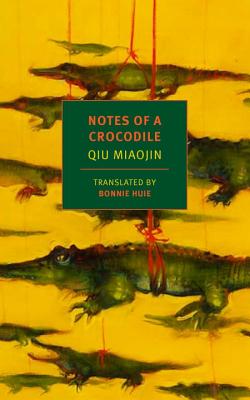APS TOGETHER
Day 1
Pages 5-34 (through "That's the kind of song Meng Sheng wrote for me.")
July 8, 2021 by Paul Lisicky
The crocodile, a major figure in the book, makes an early appearance without much in the way of context. Is it some figment of interiority? A figure for queerness? An actual talking animal? Miaojin enjoys keeping the reader destabilized. As we read about the power outage and other mishaps, we might be thinking these are metaphors for starting a novel. Then: “That’s how it is, writing a serious literary work.” The narrator lets us know she’s in on the joke, quick to laugh at herself.
The words about cruelty and mercy suggest that the narrator is trying out an idea, and the book before us might be a dark survival guide. But when she talks about having to learn cruelty, she sounds half-hearted about it, as if she’d rather not.
Shui Ling, the narrator’s major love, initially appears as a set of fragments, too overwhelming to see clearly. The fragments contain little in the way of a face. Instead we get the bus, the street.
“People in this city are manufactured and canned” says the narrator, and alongside this critique of the system, she tells us she knows how to thrive in it, despite being “pure carrion inside.” Needless to say, this brings no comfort.
Loneliness eats at the narrator. The married couple across the hall, the housemates who don’t talk, the dried noodles from the store. Miaojin sketches this desolation with bold, precise strokes.
Attraction arises as affliction, at least for Shui Ling, who’s nervous, speechless. But in one gorgeous moment, the narrator is soothed by holding Shui Ling’s purple backpack: “mildly contented by the closeness of its weight.”
